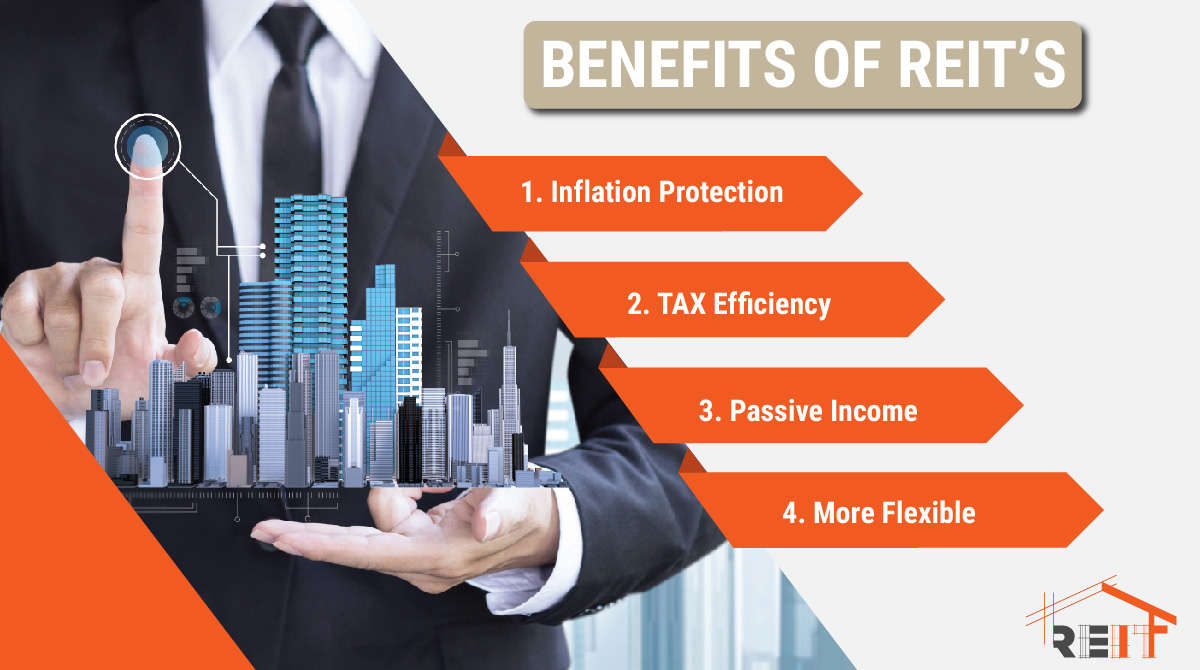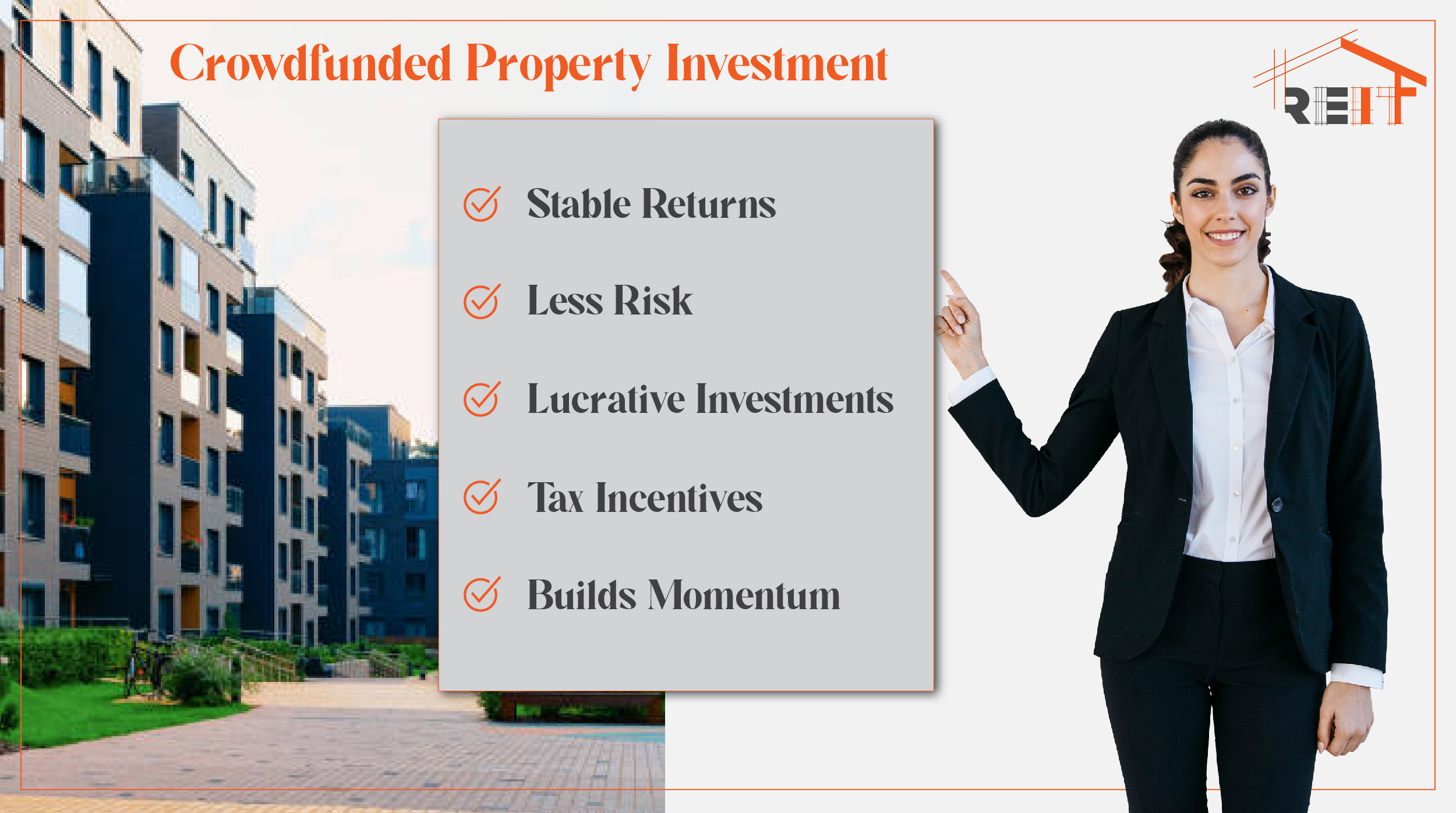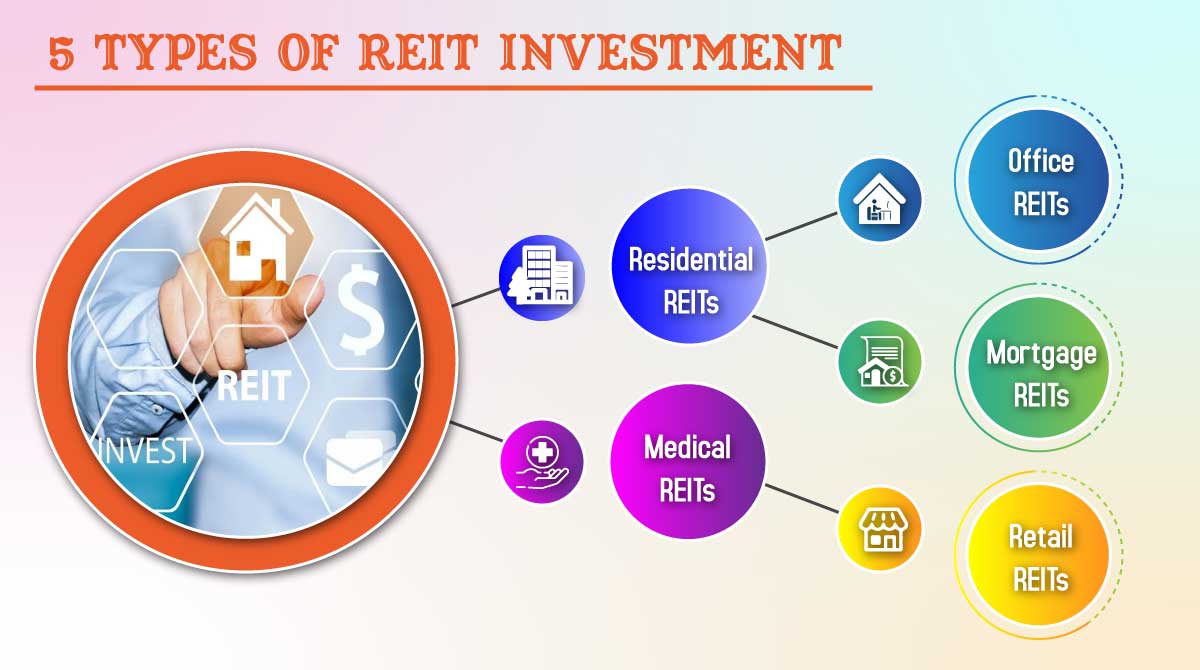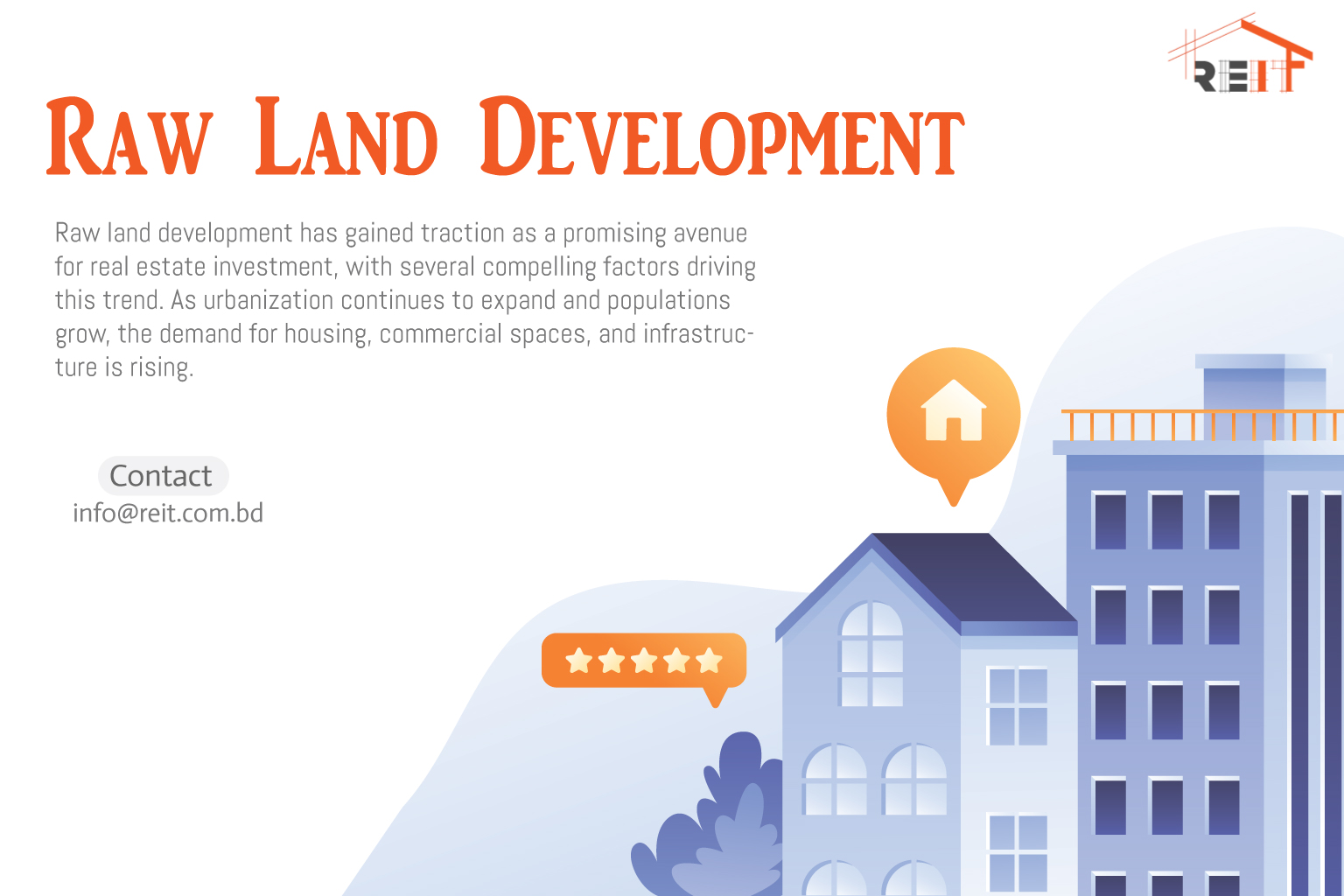Residential real estate is considered a good investment for several reasons. It offers the potential for steady rental income, which can provide a consistent cash flow, often higher than traditional savings or bond yields.
Additionally, investing in real estate allows for the diversification of an investment portfolio, spreading out risk. Real estate investments can also be leveraged, where investors use various financing methods to increase their potential return on investment.
Furthermore, real estate offers tax benefits, such as deductions on mortgage interest, property taxes, and operating expenses, along with the possibility of deferring capital gains through mechanisms like 1031 exchanges.
Also, owning real estate can provide a hedge against inflation since rental rates and property values typically increase with inflation. Lastly, real estate can be a fulfilling investment, offering the opportunity to improve properties and positively impact communities tangibly.
Should Residential Real Estate Investors Focus on Emerging Markets?
Focusing on emerging markets can be a strategic move for residential real estate investors, but it comes with both potential benefits and risks. Emerging markets often present opportunities for higher returns due to lower entry costs and rapid growth potential.
However, emerging markets also carry higher risks, including economic instability, political uncertainty, and less established legal frameworks for property rights. These factors can lead to market volatility, impacting the stability of investments.
Investors need to conduct thorough market research, including understanding local economic trends, regulatory environments, and cultural nuances. A careful assessment of the risk-reward balance and a long-term investment perspective is essential.
For those with higher risk tolerance and a keen understanding of specific emerging markets, these investments can offer substantial rewards. However, more conservative investors might prefer the stability of established markets.
7 Investor’s Benefits of Residential Real Estate
Investing in residential real estate offers a range of benefits for investors, including:
1. Consistent Rental Income: One of the primary advantages is the ability to generate a steady stream of rental income, which can provide a reliable source of cash flow.
2. Long-Term Appreciation: Historically, real estate values tend to appreciate over time, offering the potential for capital gains when the property is sold.
3. Portfolio Diversification: Real estate investment can diversify an investor’s portfolio, reducing the risk associated with having all investments in a single asset class.
4. Tax Benefits: There are various tax advantages associated with owning residential real estate, such as deductions for mortgage interest, property taxes, operating expenses, and depreciation.
5. Leverage: Real estate allows for the use of leverage, meaning investors can control a large asset with a relatively small initial investment.
6. Inflation Hedge: Real estate often acts as a hedge against inflation, as rental rates and property values tend to increase with inflation.
7. Equity Building: Through mortgage payments, investors gradually build equity in the property, which can be leveraged for further investment.
Why Should Landlords Consider Residential Real Estate Investment?
Landlords should consider investing in residential real estate due to its numerous advantages. It provides a steady source of income through rental payments, which can be a stable and predictable cash flow, often higher than traditional investments like bonds or savings accounts.
Residential properties, over time, typically appreciate, offering landlords the potential for capital gains when they decide to sell. Real estate investments also allow for significant tax benefits, including deductions on mortgage interest, property maintenance, and depreciation.
Additionally, being a landlord in the residential real estate market offers the advantage of portfolio diversification, reducing overall investment risk by spreading it across different asset classes. With real estate, there’s an opportunity for leverage, meaning landlords can control a large asset with a comparatively smaller initial investment.
Lastly, residential real estate offers a sense of security and control, as landlords can directly influence property value through improvements and effective management, making it an appealing option for those who prefer an active role in their investments.
Differences Between Residential Real Estate and Commercial Real Estate
Here’s a comparison between commercial and residential real estate in a semi-short table format:
Aspect | Commercial Real Estate | Residential Real Estate |
Type of Property | Office buildings, retail spaces, warehouses, etc. | Houses, apartments, condos, etc. |
Lease Duration | Longer leases (5-10 years or more) | Shorter leases (usually 1-2 years) |
Income Potential | Generally higher due to longer leases and higher rents | Typically lower compared to commercial |
Market Stability | More susceptible to economic fluctuations | Generally more stable |
Investment Cost | Higher initial investment and operating costs | Lower initial investment and operating costs |
Management | Professional management often required | Easier to self-manage |
Tenant Relations | Business-to-business relationships | Individual tenant relationships |
How Can You Maximize Returns on a Residential Real Estate Investment?
Maximizing returns on a residential real estate investment involves several strategic approaches. Firstly, selecting the right location is crucial; properties in high-demand or up-and-coming areas typically appreciate faster.
Ensuring the property is well-maintained and updated can also boost its value and attractiveness to tenants. Effective property management, either through self-management or hiring a professional, is key to keeping operational costs down and tenant satisfaction high.
Implementing rent optimization strategies by staying informed about the current market rates ensures competitive yet profitable pricing. Diversifying your investment portfolio across various types of residential properties and locations can spread risk and increase potential returns.
Lastly, keeping an eye on market trends and being ready to buy or sell at opportune times can significantly impact the success of the investment. By combining these strategies, investors can effectively increase their returns in the residential real estate market.
Why Is Diversification Important in Residential Real Estate Investment?
Diversification is crucial in residential real estate investment as it spreads risk and enhances the potential for stable returns. By investing in various types of properties such as single-family homes, apartments, or locations, an investor can mitigate the impact of market fluctuations.
For instance, if one particular real estate market experiences a downturn, the investor’s portfolio isn’t wholly affected due to the presence of investments in more stable or thriving markets.
Diversification also allows investors to capitalize on different market dynamics; while some areas might be experiencing growth due to new developments or job opportunities, others might offer steady income from established neighborhoods.
Additionally, different property types attract a range of tenants, broadening the tenant base and lowering vacancy risks. Diversifying also balances high-risk, high-return properties with stable, lower-return ones, creating a more robust and resilient investment portfolio.
5 Tips for Successful Residential Real Estate Investing
Successful residential real estate investing requires a blend of careful planning, market knowledge, and strategic execution. Here are some key tips:
1. Understand the Market: Research local real estate trends, including pricing, rent demand, and neighborhood developments.
2. Choose the Right Location: Look for areas with growth potential, good schools, amenities, and low crime rates.
3. Budget Wisely: Factor in all costs, including mortgage, taxes, insurance, and maintenance, not just the purchase price.
4. Screen Tenants Carefully: Reliable tenants are crucial for consistent rental income and property care.
5. Understand Legal Obligations: Know landlord-tenant laws, property standards, and your responsibilities as a landlord.
Conclusion
Residential real estate presents a unique and potentially lucrative investment opportunity. It offers a blend of long-term capital growth, steady rental income, and the ability to leverage, making it an attractive option for diverse investor profiles.
However, success in this field requires more than just purchasing property; it demands thorough market research, strategic location selection, sound financial management, and a deep understanding of tenant needs and legal obligations.
By focusing on maintaining property quality, managing risks effectively, and staying adaptable to market changes, investors can maximize their returns. Additionally, the benefits of portfolio diversification and the use of professional networks and resources cannot be overstated.
FAQs
Is It Better to Invest in Residential or Commercial Real Estate?
This depends on the investor’s goals, risk tolerance, and resources. Residential real estate is often more accessible for individual investors and can provide more stable rental income but typically involves more hands-on management.
How Can I Finance a Residential Real Estate Investment?
Common methods include traditional mortgages, government-backed loans, private loans, or real estate investment groups. Some investors also use cash or home equity lines of credit.
How Important is Location in Residential Real Estate?
Location is crucial as it influences property value, rental income potential, tenant demand, and resale value. Properties in desirable locations typically appreciate faster.
What Are the Tax Implications of Owning Residential Real Estate?
Tax implications include property taxes, potential income tax on rental income, and capital gains tax on sale. However, there are deductions available such as mortgage interest, property tax, operating expenses, and depreciation.
















